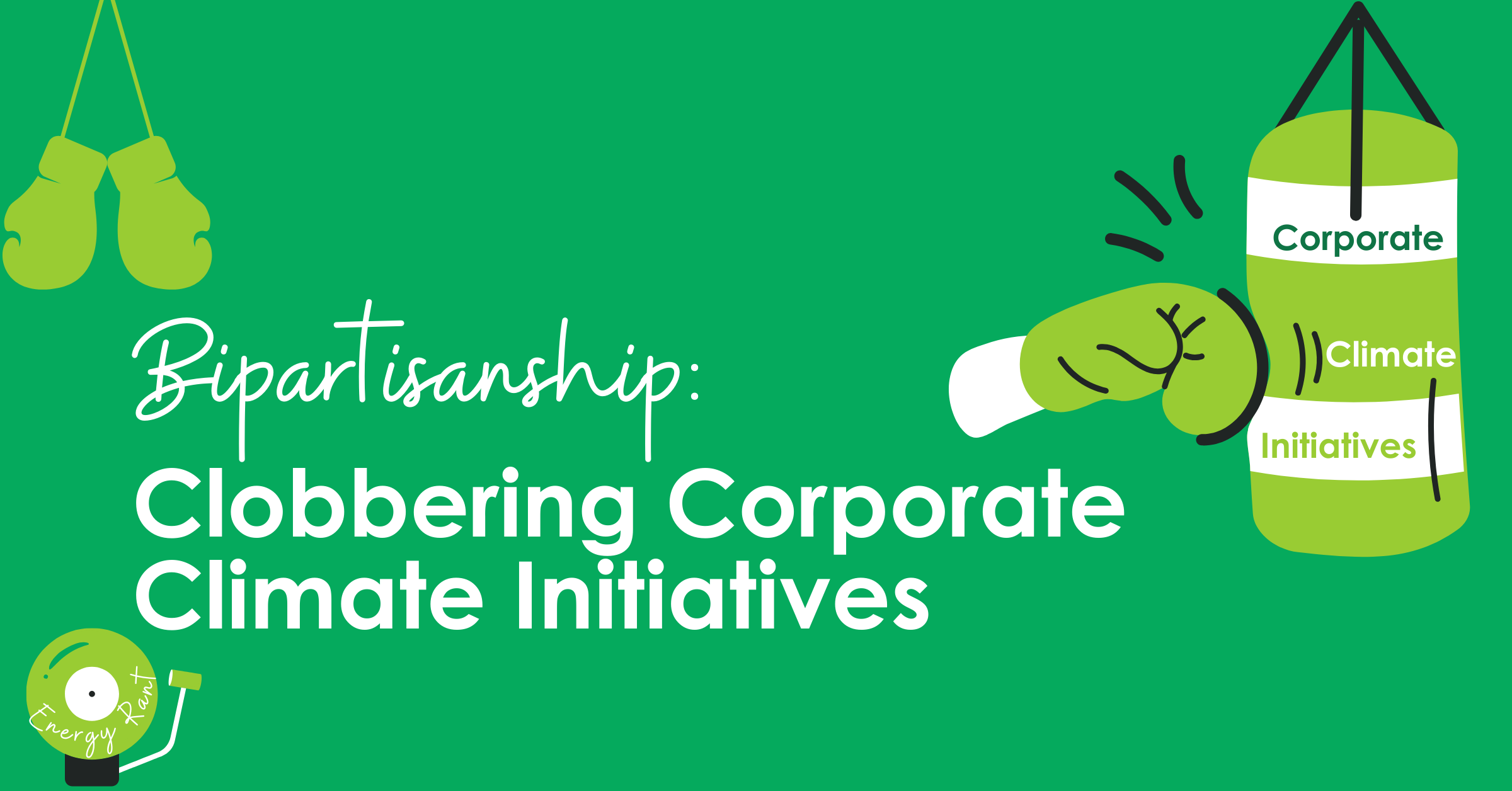
New York Attorney General Letitia James is suing JBS USA Foods, the country’s largest beef producer, for misleading the public with its net-zero greenhouse gas emissions plan by 2040. Not to be left behind, Attorneys General from Iowa, Kansas, Nebraska, and Tennessee are firing warning shots across the bows of companies like Target, Tyson Foods, and grocery store parent company Ahold Delhaize.
Headline: Democrats and Republicans align against [some] corporate climate change plans, particularly net-zero targets.
What?
Why are those companies targeted while there are all kinds of Hail Mary moonshots fired by governments (local, state, and federal) and other corporations? They need better investment in lobbyists and campaign contributions and better Chief Communications Officers.
I’ve mentioned at least a couple of times in Decarbonizing Industry and Blistering Renewables that the government should not merely declare the end of CO2 emissions. They should call for the cure for cancer – and put a date on it. Or, as this Energy and Environment Legal Institute guy puts it, “Unfortunately, policymakers can’t order technology like dinner.”
What about these corporate claims?
- In 2021, General Motors declared it would phase out gasoline and diesel-fueled vehicles by 2035. Hmm. 2035. JBS’s claims were to be in place by 2040. What is going on here? There is no way GM will have 100% EV sales by 2035, although it could file for bankruptcy trying. Reality arrived this year as GM CEO Mary Barra confesses, well, maybe not, delaying EV model rollouts and factory construction.
- Last month, Volvo decided it might not make 100% EV sales by the decade’s end and cut its EV sales share projections to just 90%.
- The Science-Based Targe Initiative, SBTi, notes that 120 corporations, including Amazon.com, have failed their promised climate commitments.
- Lifted straight from The Wall Street Journal because I cannot top this: “Google and Microsoft have vowed to slash emissions by the end of the decade, but new disclosures show their numbers are moving in the wrong direction. According to its annual sustainability report released Tuesday, Google’s emissions increased by 13.5% from 2022 to 2023. They are up by nearly half since 2019. A recent disclosure from Microsoft told a similar story. Its total emissions were up by 29% between 2020 and 2023.”
- In December 2022, mutual fund titan Vanguard pulled out of the Net Zero Asset Managers (NZAM) pledge to purge fossil fuels and CO2-emitting companies from its funds.
What about the following government targets?
- The EPA declared electric vehicles shall have a market share of 70% by 2032. In collaboration, Ford lost $132,000 per EV sold in Q1 2024. How long will this last?
- In the first year of his term, President Biden committed the federal government to be net zero by 2050. Two years later, the Energy Information Administration projected CO2 emissions will fall by only 30% through 2030 compared to the President’s pledge of 50%. The Wall Street Journal reported in 2022 that an Electric Power Research Institute (EPRI) report concluded, “This study shows that clean electricity plus direct electrification and efficiency … are not sufficient by themselves to achieve net-zero economy-wide emissions.”
- Or how about back in September when I noted California’s ban on diesel-powered 18-wheelers that was set to begin on the first of this year but was kicked down the road? There is a lot of money on the line in whether or not or how much to invest in these expensive rigs. The logistics are exceedingly tricky due to charger location, wait time, less freight capacity due to battery weight, and ensuring there is enough charge to reach destinations.
Plenty of goals, targets, and pledges are thrown like parade candy at children’s feet by individuals, governments, and organizations with no idea how to get there.
The Journal reports that “net-zero” was mentioned in 6,000 Securities and Exchange Commission filings in 2022. The terms “net-zero” and “energy transition” “are talked about so often and so loosely that many take them for granted as worthy goals that could be accomplished with greater buy-in from political and business leaders.“
These arbitrary claims, mandates, and targets will reduce emissions less so than my shedding light on them. The sooner we get to work deploying technologies and strategies to reduce peak load and energy consumption, the lower emissions will be.
While decarbonization and electrification suck all the oxygen out of the atmosphere, spending on efficiency is falling. The International Energy Agency notes that investment in energy efficiency “is well below where it needs to be: efficiency investments in buildings fell in 2023 and are expected to decline further in 2024.“ I noted this at the American Council for an Energy Efficient Economy Summer Study in August. Where is the energy efficiency?
